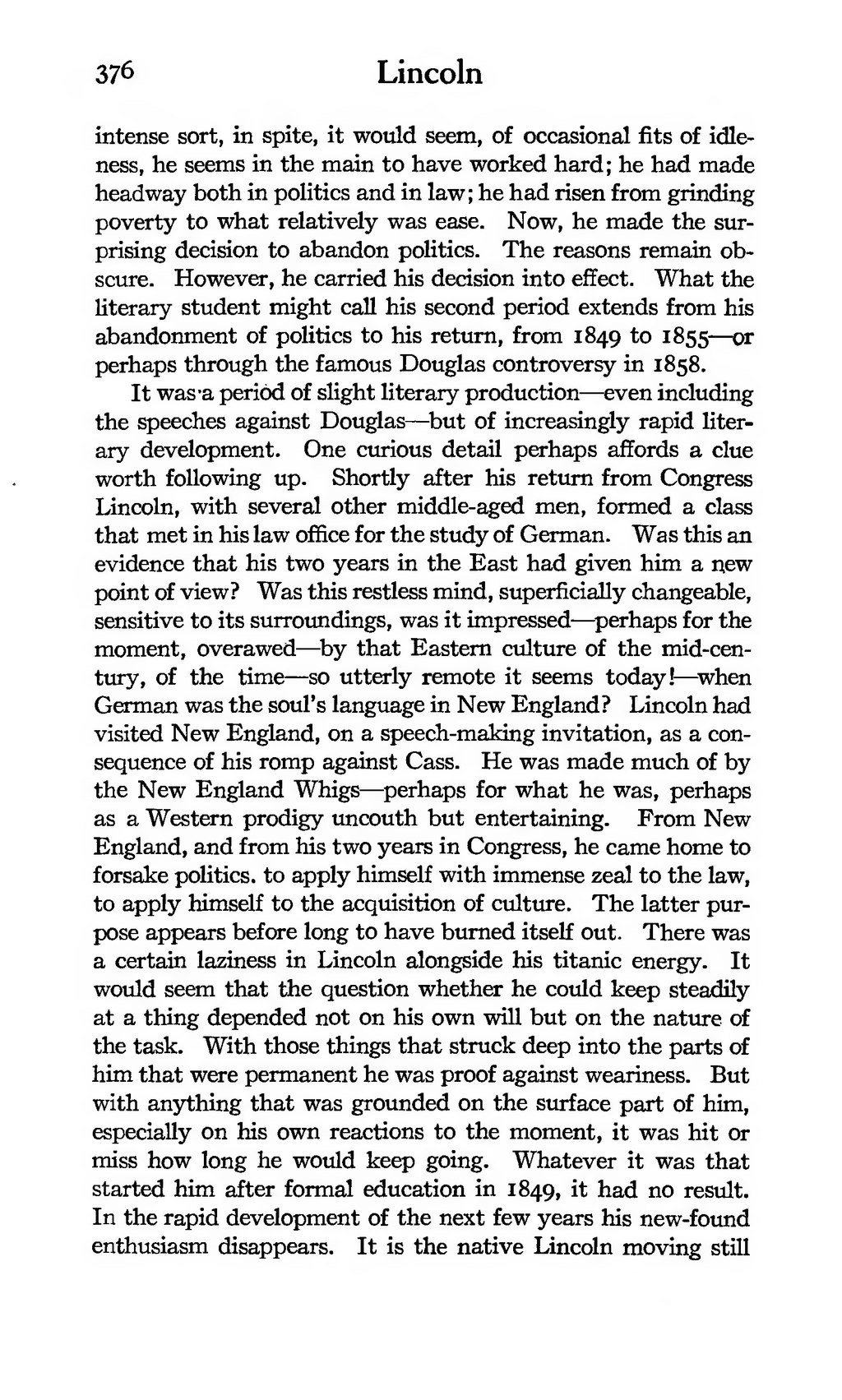intense sort, in spite, it would seem, of occasional fits of idleness, he seems in the main to have worked hard; he had made headway both in politics and in law; he had risen from grinding poverty to what relatively was ease. Now, he made the surprising decision to abandon politics. The reasons remain obscure. However, he carried his decision into effect. What the literary student might call his second period extends from his abandonment of politics to his return, from 1849 to 1855—or perhaps through the famous Douglas controversy in 1858.
It was a period of slight literary production—even including the speeches against Douglas—but of increasingly rapid literary development. One curious detail perhaps affords a clue worth following up. Shortly after his return from Congress Lincoln, with several other middle-aged men, formed a class that met in his law office for the study of German. Was this an evidence that his two years in the East had given him a new point of view? Was this restless mind, superficially changeable, sensitive to its surroundings, was it impressed—perhaps for the moment, overawed—by that Eastern culture of the mid-century, of the time so utterly remote it seems today!—when German was the soul's language in New England? Lincoln had visited New England, on a speech-making invitation, as a consequence of his romp against Cass. He was made much of by the New England Whigs—perhaps for what he was, perhaps as a Western prodigy uncouth but entertaining. From New England, and from his two years in Congress, he came home to forsake politics, to apply himself with immense zeal to the law, to apply himself to the acquisition of culture. The latter purpose appears before long to have burned itself out. There was a certain laziness in Lincoln alongside his titanic energy. It would seem that the question whether he could keep steadily at a thing depended not on his own will but on the nature of the task. With those things that struck deep into the parts of him that were permanent he was proof against weariness. But with anything that was grounded on the surface part of him, especially on his own reactions to the moment, it was hit or miss how long he would keep going. Whatever it was that started him after formal education in 1849, it had no result. In the rapid development of the next few years his new-found enthusiasm disappears. It is the native Lincoln moving still
